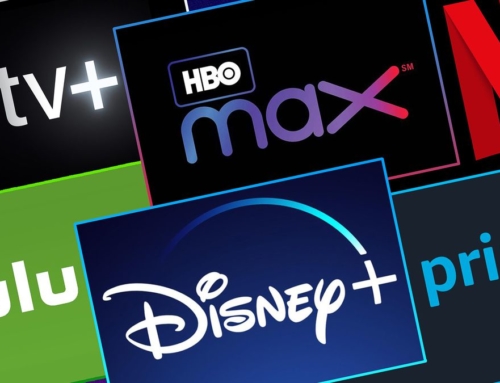When you think of streaming music, your first thought probably leads you to Spotify. The company is currently reigning as the most popular music streaming platform in the world, dominating markets in North America, Europe and Latin America. After building their worldwide presence for the last 10 years, the Stockholm-based company went public this year, and — although their stocks have faltered recently — they are still sitting on top of an estimated $32 billion valuation. Still, while they currently have 87 million paying subscribers (resulting in revenue of nearly $2.78 billion) and a stranglehold on the music industry at large, Spotify is consistently losing money every year (a $151 million loss was reported in the first half of 2018), forcing many to wonder if the company, and streaming music as a whole, is a sustainable business model. These fears may soon be put to rest however, as China’s Tencent Music looks to break into the US market.
Tencent Music is a relatively new company, having been founded in July 2016. Its short lifespan only makes its success that much more impressive. Unlike Spotify, Tencent Music came to the market prepared with assets and a team of heavy hitting investors that would allow it to dominate the market straight out of the gate.
Similar to Apple Music, Tencent Music is backed by Tencent – Asia’s most valuable public company. Tencent is an “investment holding conglomerate” that has created a slew of subsidiaries that specifically target social media and gaming markets. Since its inception in 1998, Tencent has become the world’s largest gaming and social media company. Following their purchase of the Chinese Music Corporation, Tencent launched Tencent Music in 2016 to further strengthen its reach in social media markets.
Tencent Music is currently only available in China. At their launch, Tencent Music had secured exclusive Chinese licensing deals with Universal, Sony and Warner, allowing it to quickly and easily occupy approximately 76% of the Chinese streaming music market. In the first quarter of 2018, Tencent Music reported an operating profit of $294 million on revenue of $1.3 billion. This showed a 92% increase from their reported earnings in 2017, indicating rapid growth.
As of 2018, Tencent Music has reported having approximately 644 million mobile monthly active users. However, few of those users are paid subscribers. Comparatively, Spotify boasts 191 million users and 87 million paid subscribers. Yet, Spotify has been around for 10 years and is consistently found to be hemorrhaging money each quarter. So then, what is it about Tencent Music that has made it a powerhouse in China and in the worldwide stock market?
Of course, the service has the advantage of being backed by a powerful conglomerate. However, even Apple and Apple Music can’t compete with the likes of Tencent. That’s because Tencent seems to have a laser focus on the markets they wish to penetrate. Even though they are only focused on China, Tencent’s integration throughout all of its companies and subsidiaries has allowed for a seamless flow of revenue across markets. While Tencent Music makes money from “social activities (such as virtual gifts sent to live streamers on the platform), advertising, and song sales,” most of the company’s reported profits have come from a connection with other Tencent entities such as WeChat (China’s top messaging platform), QQ and Tencent Video. These integrations also help to keep marketing expenses down, which is the area where Spotify finds itself spending the most.
While Tencent’s looming dominance could be troubling to Spotify (and other tech conglomerates), the Chinese company has actually played a hand in helping Spotify report a profit for the first time. This is due to the fact that last year, both streaming companies agreed to “swap investments” in each other in an effort to become strategic partners. Spotify took a 9% stake in Tencent Music, while Tencent took a 7.5% stake in Spotify. Following this, Tencent Music announced their intentions to go public in the US. This resulted in Tencent having to detail their proposed valuation — which in turn forced Spotify to adjust its value of investment in Tencent. This led to a tax benefit for Spotify that allowed it to report a profit of $43 million in its most recent earnings report. While this is good news for Spotify, it was caused by a loophole of sorts, which puts into question their ability to turn a profit on their own in the future.
Going forward, the main path to revenue for Spotify exists in its growing subscriber numbers. While Spotify currently sits at the top, this competition has forced them to accelerate at breakneck speed over the last 10 years, putting a massive strain on their ability to turn a profit. With fierce competition from other companies including Apple, Google, Amazon, Tidal, Deezer and Pandora — just to name a few — as well as reluctance from major labels to allow Spotify to grow, it remains to be seen whether or not the company will be able to consistently outperform its competitors. For Tencent, similar worries are miniscule as they’ve already cracked a formula for themselves that has allowed them to succeed in the Chinese market. In the coming year, they’ll take that success into the US market as they go public with an estimated valuation of $29 to $31 billion. Although this may not directly translate into overtaking Spotify’s subscriber count, Tencent is sure to make their presence known in other ways that will likely add to their domineering profit margins.











Leave A Comment
You must be logged in to post a comment.